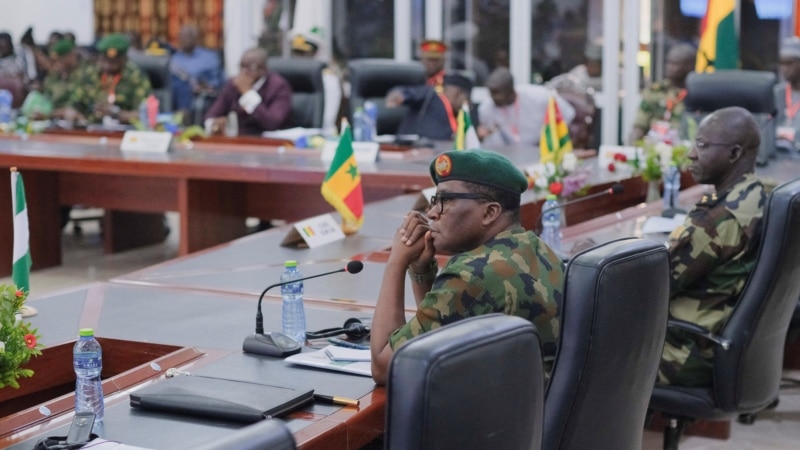ECOWAS counterterrorism force not ready for action, analysts say

Abuja, Nigeria — Regional analysts have voiced skepticism about a so-called standby counterterrorism force announced Sunday by West African bloc ECOWAS. The critics say despite the comments from Nigeria’s president suggesting the force is ready for deployment, ECOWAS has not provided any details about its size, base, funding or mode of operation.
Nigerian President and ECOWAS chair Bola Tinubu announced what he called the “activation” of a standby force on counterterrorism while addressing African leaders during an African Union meeting in Ghana on Sunday.
The force, first proposed in August 2023 after a coup in Niger, is projected to consist of military, police and civilian components and be jointly sponsored by ECOWAS members.
However, ECOWAS members have yet to decide which countries will contribute the personnel and from where they will operate.
Tinubu told leaders at Sunday's summit that ECOWAS is exploring options for funding the force.
His comments came two weeks after three of the bloc's former members — Burkina Faso, Mali and Niger — announced a confederation, signaling their exit from ECOWAS was permanent.
All three countries withdrew from ECOWAS after being suspended from the bloc following military takeovers of their governments.
Security analyst Senator Iroegbu says creating a joint ECOWAS force to fight terrorism is a good idea but questions the regional bloc's readiness.
"With Mali, Niger and Burkina Faso pulling out and forming their own [confederation], it tends to dilute whatever arrangement, because these three countries are actually the epicenters of the terrorism we're talking about,” he said. “This ECOWAS standby force, where's it going to operate? Is it in Nigeria that already has its own arrangement?”
ECOWAS said it will continue to dialogue with the military leaders of Mali, Niger and Burkina Faso and plans to convene a special summit on the future of the bloc.
In April, ECOWAS held a counterterrorism summit in Abuja to strategize on combating terrorism affecting its remaining member states.
Sub-Saharan Africa has become an epicenter of terrorism, accounting for more than half of the global terror-related deaths according to the 2023 Global Terrorism Index report.
Burkina Faso suffered the highest number of deaths, with Mali, Nigeria and Niger not far behind.
Ahmed Buhari, a political affairs analyst, says he is skeptical about the success of the ECOWAS force amid uncertainty and instability within the region.
"I do not see anything new with what ECOWAS is reiterating,” he said. “This is what we've been hearing for the past 15 years or so. It's been in the conversation. The terror hasn't declined. As a matter of fact, it looks like the terrorists are seemingly gaining ground and becoming more daring.”
Iroegbu said ECOWAS countries should focus more on improved governance if they want to address the causes of terrorism.
"More than setting up a force on counterterrorism, other aspects of non-kinetic measures are needed,” he said. “If you check, the root cause of these [problems] are non-kinetic issues like issues of good governance, development, inclusiveness, sound electoral process. These are issues that once they're in place even terrorists will find it hard to thrive in such environment."
It's not clear when ECOWAS will hold the summit on its three former member states.
Analysts say the chances of successful dialogue among the West African states are slim but it is not impossible.
